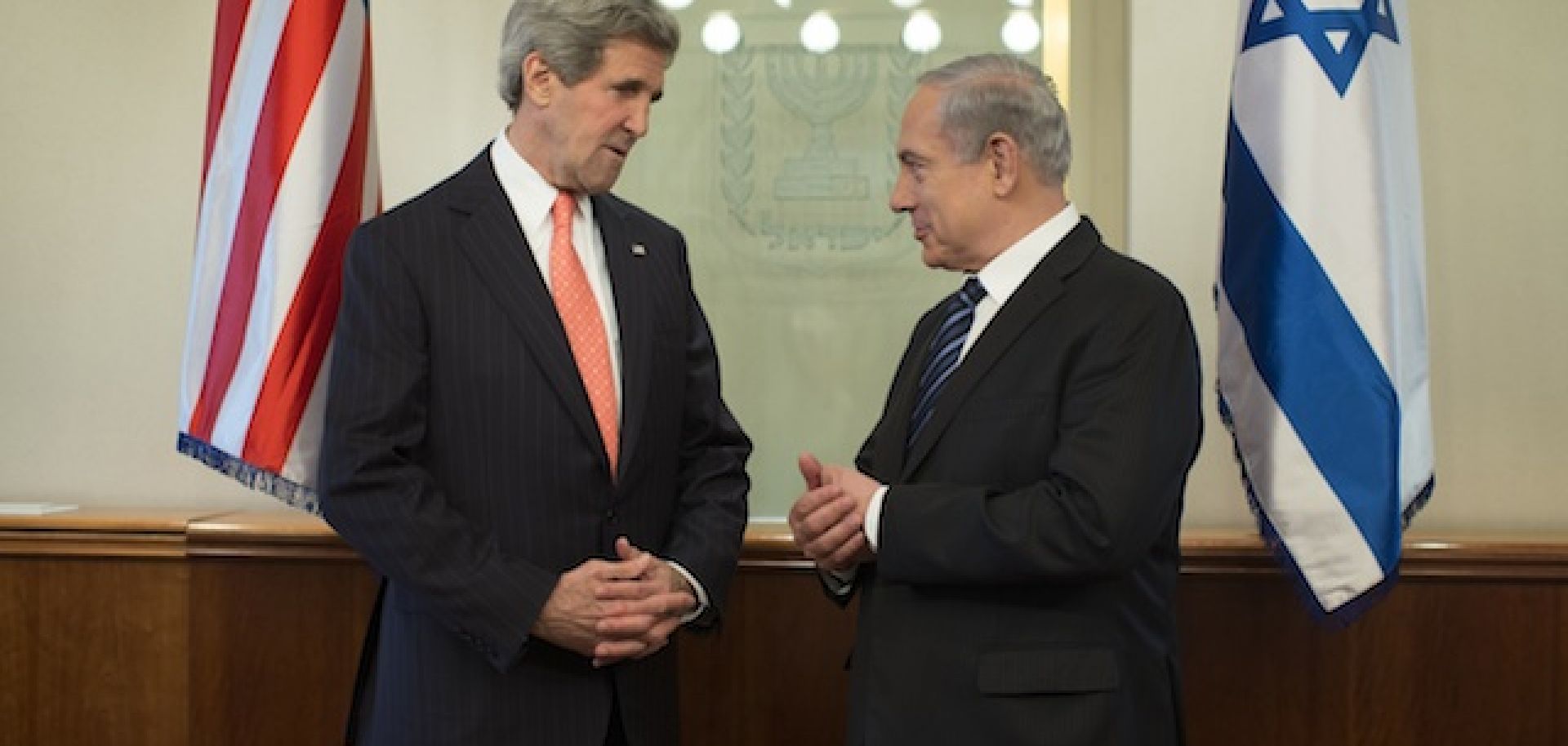ASSESSMENTS
The Latest Attempt at Israeli-Palestinian Peace Talks
Jul 30, 2013 | 10:15 GMT

(Uriel Sinai/Getty Images)
Summary
A four-month endeavor by the United States to restart direct negotiations between the Israelis and Palestinians has succeeded in bringing both sides to the table, but all sides are more concerned with their own pursuits than with reaching a comprehensive peace agreement. Matters that have troubled negotiators for decades — final status issues such as borders, Palestinian refugees' right of return and the status of Jerusalem — are compounded by political considerations working against an agreement.
The United States needs a low-cost foreign policy victory, particularly one in the Middle East, at a time when Washington is reorienting its international focus. Israel has joined the talks partly in response to U.S. pressure and partly in pursuit of strategic opportunities. And the relatively weaker Fatah is in no position to withstand U.S. and Arab League pressure to return to talks. However, both sides' willingness to restart negotiations should not be mistaken for a meaningful attempt at reconciliation.
Subscribe Now
SubscribeAlready have an account?
